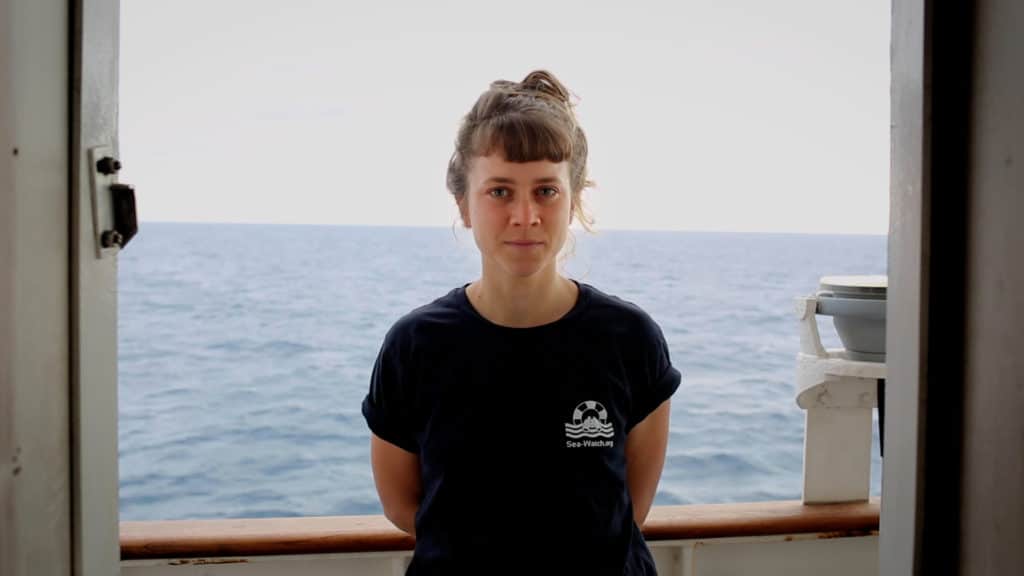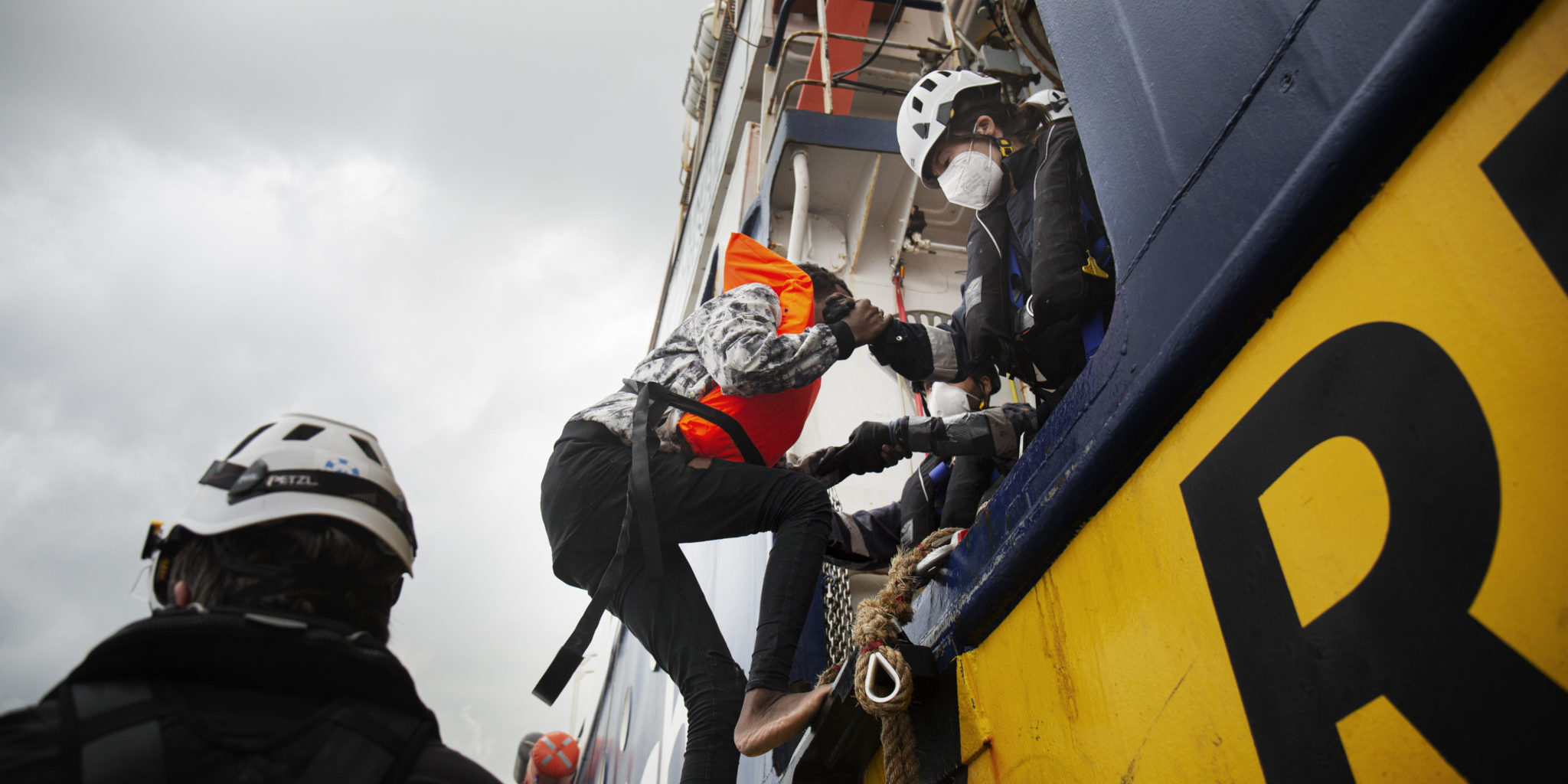The conditions for people fleeing Libya are intolerable. Serious human rights violations have been thoroughly documented and evidenced for years by civil society, human rights organisations, intergovernmental organisations as well as refugees themselves.
Since October 2nd, 2021, after Libyan police and military units carried out a large-scale crackdown and arbitrarily arrested thousands of people and took them to detention camps, refugees have been protesting in front of the UNHCR building in Tripoli. The mission of the UN High Commissioner for Refugees is to ensure that the rights of people on the move are respected worldwide. In Libya, it is clearly showing that it is unable to do so. The protesters are demanding, among other things, their evacuation to a safe country where their rights will be protected and respected. They also want an end to the funding of the so-called Libyan Coast Guard, which intercepts refugees at sea and returns them to Libya in violation of international law. Here you can inform yourself about the self-organised protest and support it financially if possible.
As I write this text, it is December. The temperatures in Europe are dropping. It is cold, windy and rainy. The weather on the Mediterranean is also deteriorating. November just passed and has illustrated once again that worsening weather conditions do not prevent people from fleeing – because they usually have no choice. The difference, however, is that fleeing across the Mediterranean in the winter months is far more dangerous than it already is during the rest of the year. Delayed or neglected assistance from state actors means that people are repeatedly left alone at sea for many hours – sometimes several days. Cold temperatures, rain and higher waves expose people to additional dangers. Unseaworthy boats cannot withstand the waves, and people are threatened with acute hypothermia.
Nevertheless, the movement of refugees across the Mediterranean continues. According to official figures from the International Organisation for Migration (IOM), in November alone almost 3,500 people were intercepted by the so-called Libyan Coast Guard in violation of international law and forced back to Libya. The UNHCR reports almost 10,000 arrivals in Italy by sea. In November last year, arrivals were 5,360, and in 2019 only 1,233 people.
In November, we were operational with Sea-Watch 4 in the central Mediterranean and were able to rescue 482 people from distress at sea in a total of seven missions. After two medical evacuations, 461 people were still on board, some of whom were only able to stay in sheltered spaces.

Many people had to sleep on deck, exposed to the weather. The weather deteriorated to such an extent that strong waves, wind and rain caused the decks to flood and some of the guests to get wet. Four people collapsed and had to be treated and stabilised in the shipboard hospital.
All this happened while we were already off Sicily in Italian territorial waters and our guests were denied a safe haven. We were allowed to seek shelter from the storm off the port of Augusta, but specifically not allowed to bring people ashore. The crew of Sea-Watch 4 was therefore forced to declare a state of emergency overnight.
People do not interrupt their fleeing because of bad weather. Winter in the Mediterranean only makes the flight more dangerous than it already is. We need safe and legal entry routes to Europe! No one should have to make the dangerous crossing of the central Mediterranean – neither in summer nor in winter!











